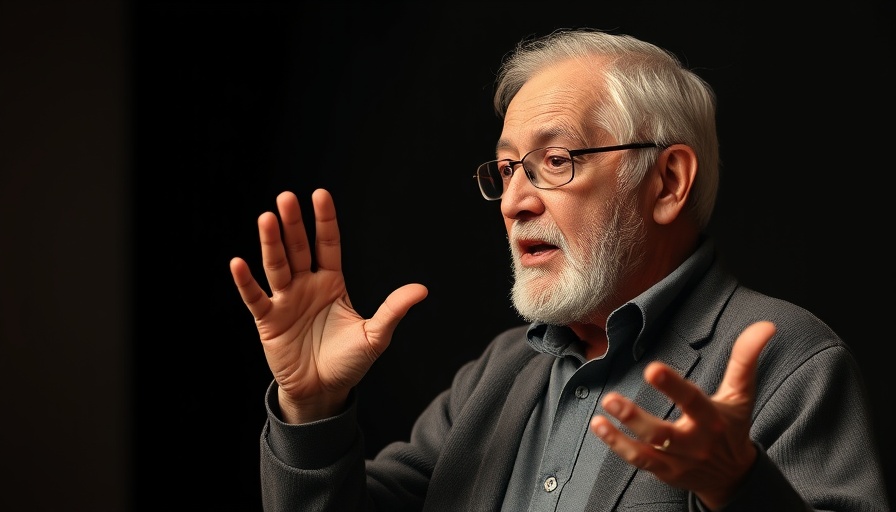
James Cameron's Moral Critique of 'Oppenheimer'
Renowned film director James Cameron has expressed strong disapproval of Christopher Nolan’s latest film, Oppenheimer, for what he perceives as a significant oversight: the film's failure to address the devastating aftermath of the atomic bombings in Japan during World War II. Cameron labeled the omission a "moral cop-out" and emphasized the importance of portraying the real consequences of such historical events.
Why Historical Context Matters
Cameron’s critique resonates deeply considering the weight of historical narratives in shaping public understanding of traumatic events. The atomic bombings of Hiroshima and Nagasaki resulted in immense suffering, which remains a painful chapter for Japan and the world. By failing to engage with these repercussions, films like Oppenheimer risk perpetuating a sanitized version of history that elevates scientific achievement while diminishing the human cost. Such an approach neglects the ethical implications tied to technological advancements in warfare.
Parallel Examples in Cinema
This isn't the first time filmmakers have faced scrutiny for their historical representations. Movies such as Saving Private Ryan and Schindler's List are often praised for their harrowing portrayals of war and genocide, respectively. These films not only entertain but also educate audiences about the profound impacts of violence, challenging viewers to reflect on the moral choices made during such grim times.
Cameron’s Counterattack: What Comes Next?
In response to the perceived failures of Oppenheimer, Cameron is developing his own film, titled Ghosts of Hiroshima, which aims to illuminate the real-world consequences of atomic warfare. Through this project, Cameron hopes to confront viewers with the stark realities of the decisions made during the Manhattan Project and their implications on global peace and humanitarian efforts.
Why This Discussion is Important Today
As tensions rise globally, the lessons from the atomic bombings remain profoundly relevant. The conversation initiated by Cameron challenges not only the filmmakers of today but also society to reckon with the ethical dimensions of nuclear weapons and their legacy. How will history view our current armaments policies? As citizens, do we allow narratives that simplify the moral complexities of warfare?
Future Predictions: The Cinematic Landscape
Given Cameron's reputation and the momentum of the current discourse, audiences may soon see an upsurge in films that tackle difficult historical truths directly, rather than glossing over the disturbing realities of war. Such a shift could enhance cultural understanding and appreciation for the sacrifices made by countless individuals in times of conflict.
Engaging Audiences with Provocative Questions
Film is a powerful medium for exploring moral dilemmas. Cameron’s take on Oppenheimer encourages viewers to ponder: what responsibilities do filmmakers have to their audiences in telling historical narratives? Are we comfortable with a version of history that glosses over its darker truths? These reflections make it clear that the conversation around warfare, ethics, and storytelling continues to be essential in our global community.
In taking a stand against a perceived omission of vital context, James Cameron has opened the door to vital discussions about the portrayal of history in film. His upcoming work promises to address these issues more explicitly, reminding us of the enduring impact of our past and the narratives we choose to share.
As we navigate an increasingly complex world shaped by technology and conflict, it remains essential to confront the moral choices laid before us. Cameron's critique may just be the catalyst needed for a deeper dive into the uncomfortable realities that accompany human innovation.
 Add Element
Add Element  Add Row
Add Row 



Write A Comment